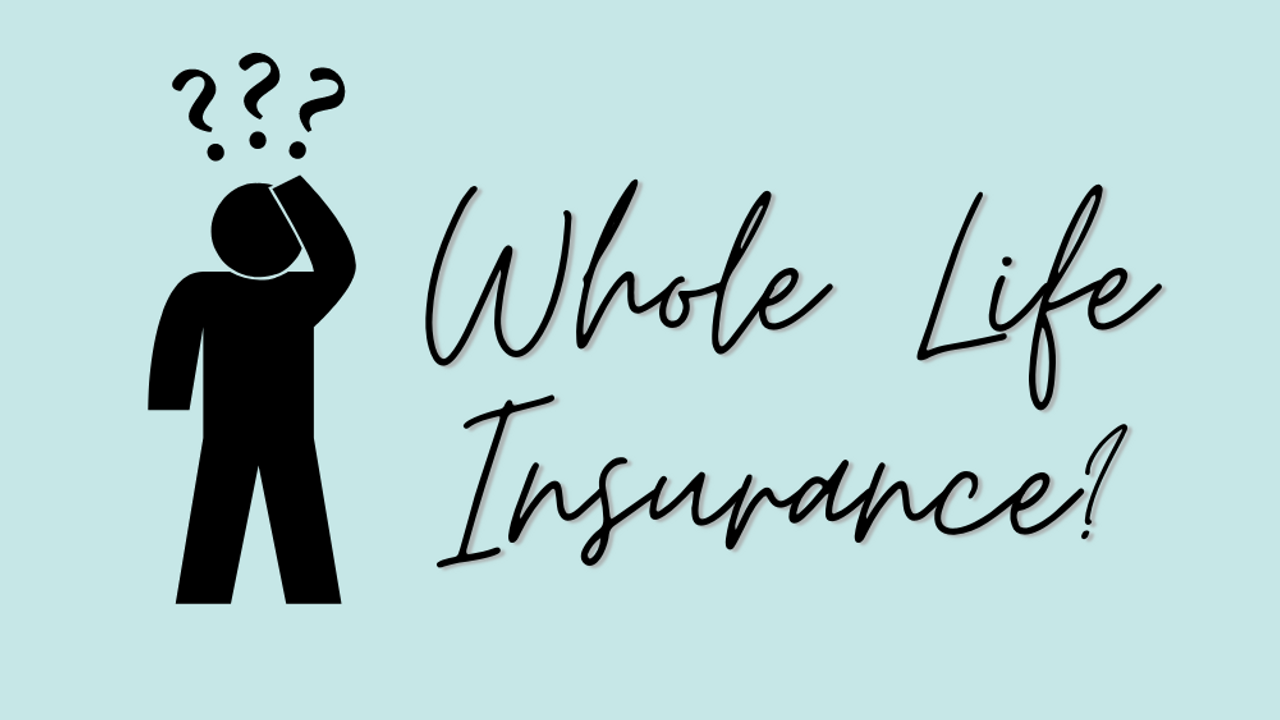Should I Buy Whole Life Insurance?

This post may contain affiliate links. If you make a purchase, I will be compensated at no additional cost to you. For my full disclosure, click here.
I recently asked you guys the worst money advice you had ever received, and tons of you said buy whole life insurance.
I shared the response and got a lot of questions.... what in the world is whole life insurance? Why do you say to buy term life insurance?
Let's break it down...
Whole life insurance, indexed universal life insurance, and other similar policies are permanent life insurance. They don't end after a certain number of years, like term life insurance does. The main difference is that these have a built in "cash value" or "investment" that you are creating with your premiums over time.
Sounds great, right? Not so much.
They also have complex rules and fees. If you want to gain access to the money before a designated number of years, there is a fee for that. There is also a monthly premium fee. And policy fee. And fee for the investment account. And more...
The worst part? That "cash value" part doesn't even get paid out if you die - only the death benefit does in most policies.
Are you confused yet? That's sort of the point. These policies are full of fees and exceedingly difficult to navigate. Not to mention, expensive! According to Nerd Wallet, the average annual premium for a 30 year old is $5,000. Yikes.
One of the big selling points for these products is the tax benefits. You may even hear them touted as the "Roth IRA for the Rich" (just so you know, you can still use a Roth IRA with an income above the classic limit). Now that the estate tax limit has been increased to $12 million per tax payer, very few Americans have an estate that warrants this type of policy to avoid estate taxes.
The worst part? Consumer reports estimates these products to return on average 2% after fees. That means this great "investment product" you're being sold could be outperformed by a high yield savings account. Wild.
The "pitch" for these products often includes a comparison to the S&P 500, and is often presented in a way that makes it appear these products outperform. Pay attention to the details here. I've seen graphic representations that showed the IUL outperforming the S&P 500 historical returns, WITHOUT dividends. Dividends are a large portion of S&P 500 total return, making this an inaccurate comparison. Don't get fooled.
In contrast, term life insurance is simple. You choose the death benefit (for example $500,000) and the number of years the policy will be active for (for example 25 years). The monthly payment is much lower. For most, you can get a large policy for less than $25/month. Of course, premiums depend upon your age and health.
You should aim to have at least 10-12 times your annual salary in term life insurance.
If you're a healthcare professional with a $100,000 income, that means you would need $1M-$1.2M in life insurance. With a term policy, that's actually very inexpensive to carry.
Check out Dr Disability Quotes for a quote on term life insurance. Ask them about own occupation long term disability insurance while you're at it - I talk more about my policy here.
Life insurance is a key part of any money plan. If you have any dependents, a term life insurance policy is something you cannot live without - pun intended.
Millionaires in Medicine is the fastest growing coaching program to help medical professionals build wealth & create early financial freedom. Click here to learn how to apply.



